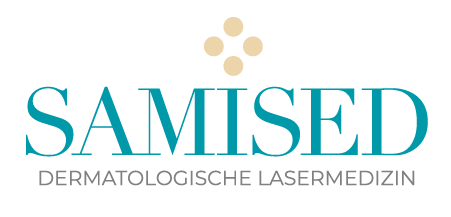The 12-Step program, first developed and used by Alcoholics Anonymous, is a 12-step plan in order to overcome addictions and compulsions. Around 40% to 60% of people working to overcome a substance use disorder will relapse at some point. However, it is important to recognize that this rate is comparable to relapse rates for other chronic health conditions such as hypertension and asthma. People continue to engage in harmful behaviors despite negative consequences because addiction changes the brain’s reward system, which increases the desire for the substances or experiences.

But while you can’t do the hard work of overcoming addiction for your loved one, your love and support can play a crucial part in their long-term recovery. Some people are able to stop drinking on their own or with the help of a 12-step program or other support group (see below for links). Others need medical supervision in order to withdraw from alcohol safely and comfortably. Which option is best for you depends on how much you’ve been drinking, how long you’ve had a problem, the stability of your living situation, and other health issues you may have.
How to Know When It’s Time to Cut Back
These changes in the brain also affect impulse control and judgment, which makes quitting that much more challenging. People who have a substance use disorder often find that overcoming it is more challenging than they expected. They may feel that addiction is a myth and they can quit any time they want or that they are an exception to the rule. This can also occur with behavioral addictions involving activities such as eating, sex, gambling, shopping, and exercise. Attend meetings for loved ones of those recovering from an addiction as a way of supporting yourself and connecting with others who can relate.
Certain medications have been shown to effectively help people stop or reduce their drinking and avoid relapse. Below is a list of providers and the type of care they may offer. If you have any of these symptoms, your drinking may already be a cause for concern. The more symptoms you have, the more urgent the need for change. A health professional can conduct a formal assessment of your symptoms to see if AUD is present.
Best Online Therapy Platforms We Tried and Tested This Year
Your healthcare provider can help you evaluate the pros and cons of each. Professionals in the alcohol treatment field offer advice on what to consider when choosing a treatment program. This is not an uncommon concern, but the short answer is “no.” All medications approved for treating alcohol dependence are non-addictive. These medicines are designed to help manage a chronic disease, just as someone might take drugs to keep their asthma or diabetes in check. The U.S. Food and Drug Administration (FDA) has approved three medications for treating alcohol dependence, and others are being tested to determine whether they are effective. Ultimately, there is no one-size-fits-all solution, and what may work for one person may not be a good fit for someone else.
- You can call these free hotlines at any time and speak to someone who understands what you are going through and who can provide information, compassionate support, crisis management, and referrals to treatment.
- Even if the person survives, an alcohol overdose like this can lead to long-lasting brain damage.
- Take our free, 5-minute substance abuse self-assessment below if you think you or someone you love might be struggling with substance abuse.
- Residential programs are offered at professional rehab facilities, providing an alcohol-free environment that eliminates any potential triggers and temptations to drink.
- Substance use commonly occurs alongside other mental health conditions.
- Take time to contact friends and family who will support you in your goals.
Make a table like the one below, weighing the costs and benefits of drinking to the costs and benefits of quitting. Because an alcohol overdose can suppress a person’s gag reflex, they could choke and possibly die if they vomit while unconscious and lying on their back. If vomit is inhaled into the lungs, it can cause a person to stop breathing. If you suspect an alcohol overdose and the person is unconscious, do not leave them alone. If you drink more than this and your body isn’t able to break it down fast enough, it accumulates in your body.
Signs of an Alcohol Use Disorder
AAC accepts many private insurance policies, as well as some Medicaid policies. You can verify your loved one’s insurance for addiction treatment, which, depending on their provider and specific plan details, may be fully covered by insurance. American Addiction Centers has rehab facilities scattered across the United States. The 12-Step movement can be a powerful and helpful force for many people, but some people struggle with what they interpret as a strong religious element of the program.
- Most residential treatment programs include individual and group therapy, support groups, educational lectures, family involvement, and activity therapy.
- If you turn to alcohol to ease anxiety, try exercise as a healthy alternative.
- Some people don’t like or are not interested in the 12-Step model, even with the variations above or through organizations that facilitate the 12-Step model.
- Psychological therapies, as well as medications, can provide long-term relief for these problems, which addictions tend to worsen over time.
And you don’t have to wait until you hit rock bottom; you can make a change at any time. Whether you want to quit drinking altogether or cut down to healthier levels, these guidelines can help you get started on the road to recovery today. Treatment waiting lists can take a couple of weeks up to several months, and enrollment in most state-funded treatment services will usually require proof of residence and income. Depression and anxiety often go hand in hand with heavy drinking. Studies show that people who are alcohol dependent are two to three times as likely to suffer from major depression or anxiety over their lifetime. When addressing drinking problems, it’s important to also seek treatment for any accompanying medical and mental health issues.
You don’t have to leave the house to get support from other people who understand and respect what you’re trying to do. In fact, you can find it online with sites like Sunnyside, which helps you create a customized plan, Tempest, Moderation.org or Ben’s Friends for people who work in the food and beverage industry. If you drink to ease the pain of loneliness, then make a conscious effort to connect with others. Alcoholics Anonymous how to overcome alcoholism cautions its members not to get too hungry, angry, lonely or tired—all of which can make you more vulnerable to the urge to drink. Find activities that are mentally and emotionally nourishing and bring you joy, and identify ways to connect socially with friends, says Witkiewitz. Remind yourself of why you want to cut back, talk to a friend about it and distract yourself with a hobby or exercise, the NIAAA suggests.
- Take action to protect your loved ones from an alcohol overdose.
- According to the research, simply counting your drinks honestly and consistently is a powerful how-to strategy.
- The important thing is to remain engaged in whatever method you choose.
- Finding a stress outlet to replace the tendency to drink can greatly aid your recovery.
Proper nutrition provides the body with essential nutrients, while sufficient sleep supports the body’s natural healing processes. Engaging in activities that bring joy and fulfillment enhances the overall quality of life. Practicing mindfulness and meditation helps individuals stay present, reducing anxiety and promoting emotional well-being. By adopting these coping strategies, individuals build resilience and gain the ability to face life’s challenges without turning to alcohol. The encouragement of a supportive network acts as a bedrock, offering emotional support and motivation. Effective communication with loved ones ensures that they become allies in the pursuit of sobriety, creating an atmosphere conducive to positive change.
